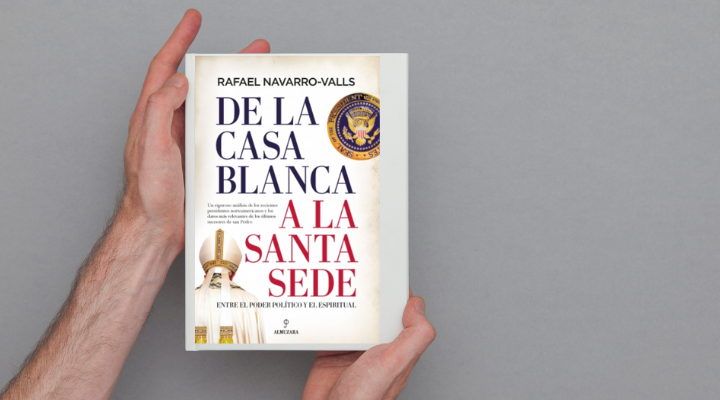
The Kennedys, and in particular President J.F.K., occupy an important part of this work. For a long time the Kennedy myth was alive and well, fueled by conspiracy theories about his death, although the current perception of the mythical presidency could be summed up in the question of who the American politician really was.
In contrast, the author presents his brother Robert, also assassinated, as the best of the Kennedys. The internal struggles of U.S. politics are presented with rigor and a look of humanity on the different characters.whether it is Richard Nixon, Jeb Bush, Barack Obama or Hillary Clinton. No less interesting is the examination of the Trump and Biden presidencies..

The author intends to counteract the opinions that point out the differences between the last Popes. This perception, basically more political than religious, proves to be mistaken, as Navarro rightly points out, because the differences are in style, not in content.. The great contribution of St. John Paul II, in his opinion, is to have been able to change the political parameter for the historical-cultural one at the time of acting and interpreting events. The Polish Pontiff undoubtedly influenced the fall of the communist regimes, not from an opposing ideology but from the recourse to ethical and moral conscience.which is present in the roots of history and culture.
With respect to the Pope FrancisIn this book, self-serving political interpretations are rejected. Instead, Navarro stresses his closeness as a pastorLike his Master, he goes out in search of everyone, without exception.
Collaboration:
Antonio R. Rubio Plo, Graduate in History and Law. Writer and international analyst.
@blogculturayfe / @arubioplo